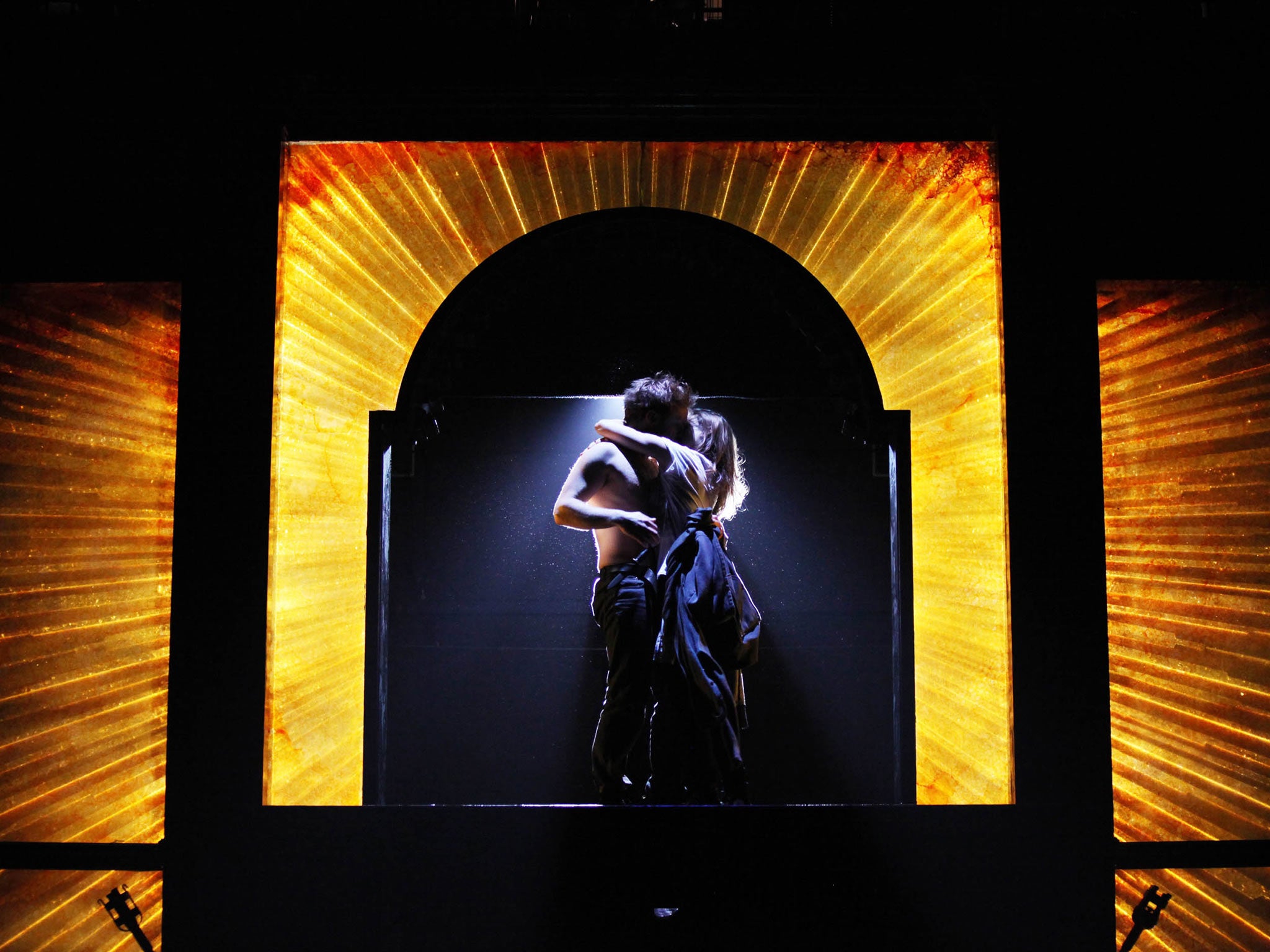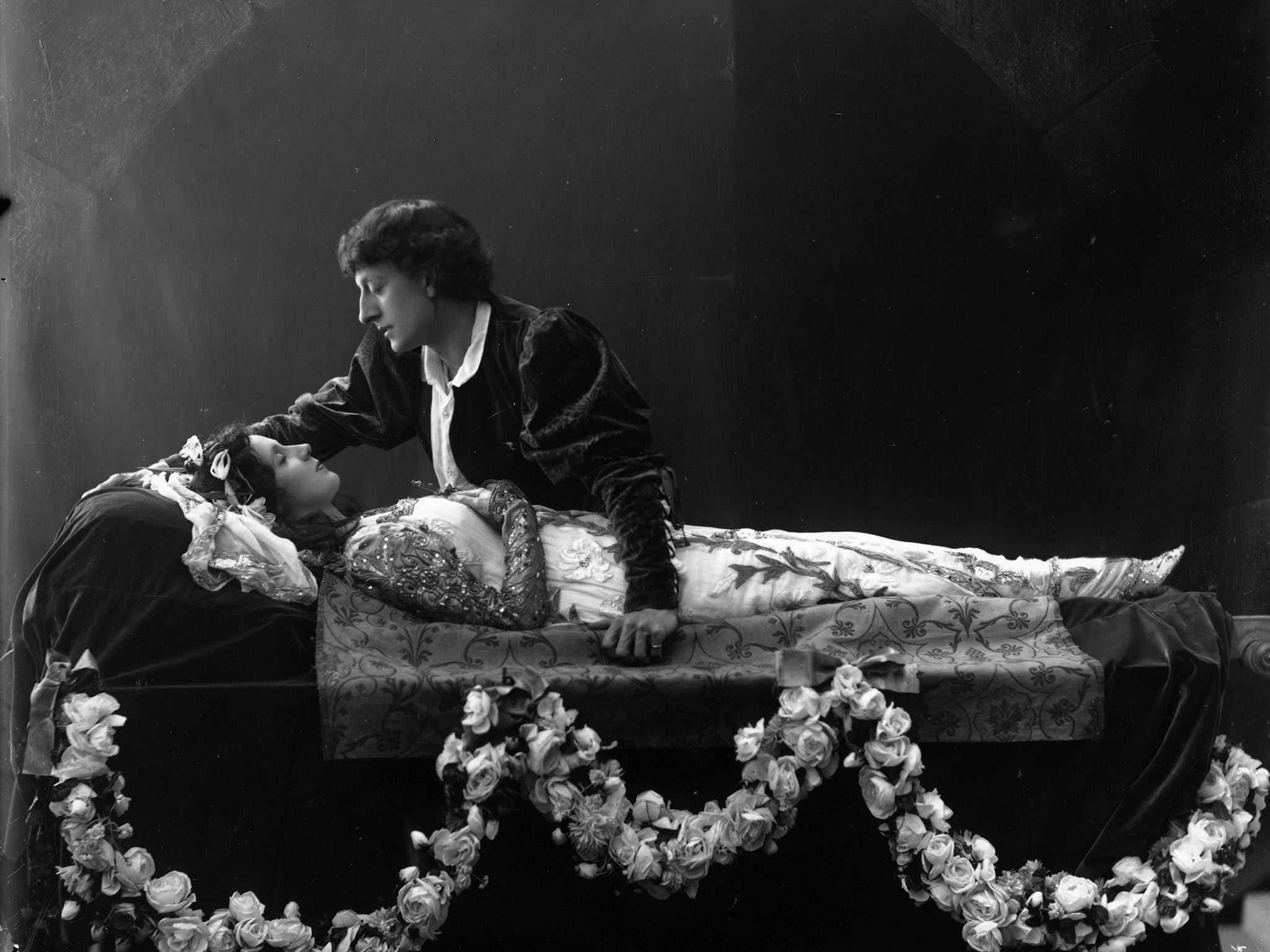Romeo and Juliet: Why William Shakespeare's romantic tragedy can still break hearts – and families
The Bard's 13th play is an archetypal story of forbidden, young passion crushed by customs and tribal hostilities

The Most Excellent and Lamentable Tragedy of Romeo and Juliet, Shakespeare’s 13th play, was an immediate hit with audiences, and has been globally popular ever since.
It is the archetypal story of forbidden, young passion crushed by customs, punitive rules, adult intransigence and tribal or clannish hostilities.
Through human history, doomed love has been a recurrent theme, in art, literature and myths.
Hero and Leander, Pyramus and Thisbe, Cathy and Heathcliffe and many other hopeless paramours are immortalised in the west. In Arabia the star-crossed lovers were Leila and Mahjnu, and in the Punjab, beautiful, wealthy Heer and farmer’s son Ranja.
My mother told me these two stories often when I was a child. Trapped in a loveless marriage, she felt that these characters lived the true, heroic life. She turned me into a hopeless romantic. That must be why I fell in love with Shakespeare as soon as I started studying and performing in his plays at school. For he truly understood the heat, light and darkness of subversive desire .
I am currently making a series for BBC Radio 4 on Shakespeare’s plays, about couples who breach the walls between races, faiths and separate worlds. Romeo and Juliet rebel against other barriers: family loyalties and inherited rancour. They reach out, touch, kiss and make love – and so must die.
I played Juliet when I was in my teens, in a school play. That production, in 1967, which brought race into the mix, led to indescribable pain and loss and made me the person I am today.

I was born and raised in Uganda, then part of the British empire. It was a beautiful and damned place. The vegetation was lush and green, fruits dangled and fell from trees, birds sang, wild creatures roamed free. But racial hierarchies and crude prejudices spoiled that paradise.
The colonial power created a social pyramid: whites at the top, browns in the middle and blacks in the pits, disrespected and exploited by those above them. We went to separate schools and hospitals, did not socialise. I never saw a single Asian-black couple or child.
After independence in 1962, structural apartheid was dismantled, but attitudes proved harder to shift. Black children started showing up at our Asian school, as did British and American freethinkers.
One of them was drama teacher Joyce Mann, who now lives quietly in Shropshire. She saw our divided lives and decided to produce a version of Romeo and Juliet in which the Montagues were black and the Capulets were brown. She used the stage to make a point. And what a point it was. I got the part of Juliet; John Abwole, black and gorgeous, was Romeo.
As we rehearsed, life and art merged. I both played and felt Juliet’s bold sexuality. At first John and I found it hard to touch and kiss – prohibitions get deep into the psyche. Then we went for it hungrily, breaking taboos.
My Asian boyfriend was playing Tybalt. He was revolted by my wantonness, the eagerness and ardency with which I touched black flesh. The fights between him and Romeo soon turned real. A bigger play was playing out within this school production. Audiences sensed the significance of what they were watching.
The school arts department won a British Council prize and I was awarded a scholarship to study at a drama school in London. Elated, I arrived home to find the extended family gathered, looking grim as if someone had died.
They turned to me with burning eyes and I knew I was in deep trouble. Some of the men beat me up – I still have marks. My mother wept and said I had shamed them all by touching a black man. The envelope informing them of my scholarship was torn up. My father said nothing. But then he didn’t speak to me till the day he died.
I have never been able to watch this play without sobbing for hours afterwards. I think they are tears for my unforgiving dad and perhaps for what could not be between me and John.
Join our commenting forum
Join thought-provoking conversations, follow other Independent readers and see their replies
Comments
Bookmark popover
Removed from bookmarks